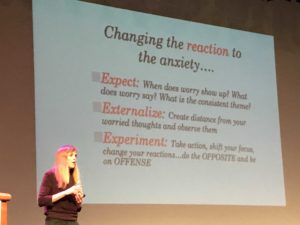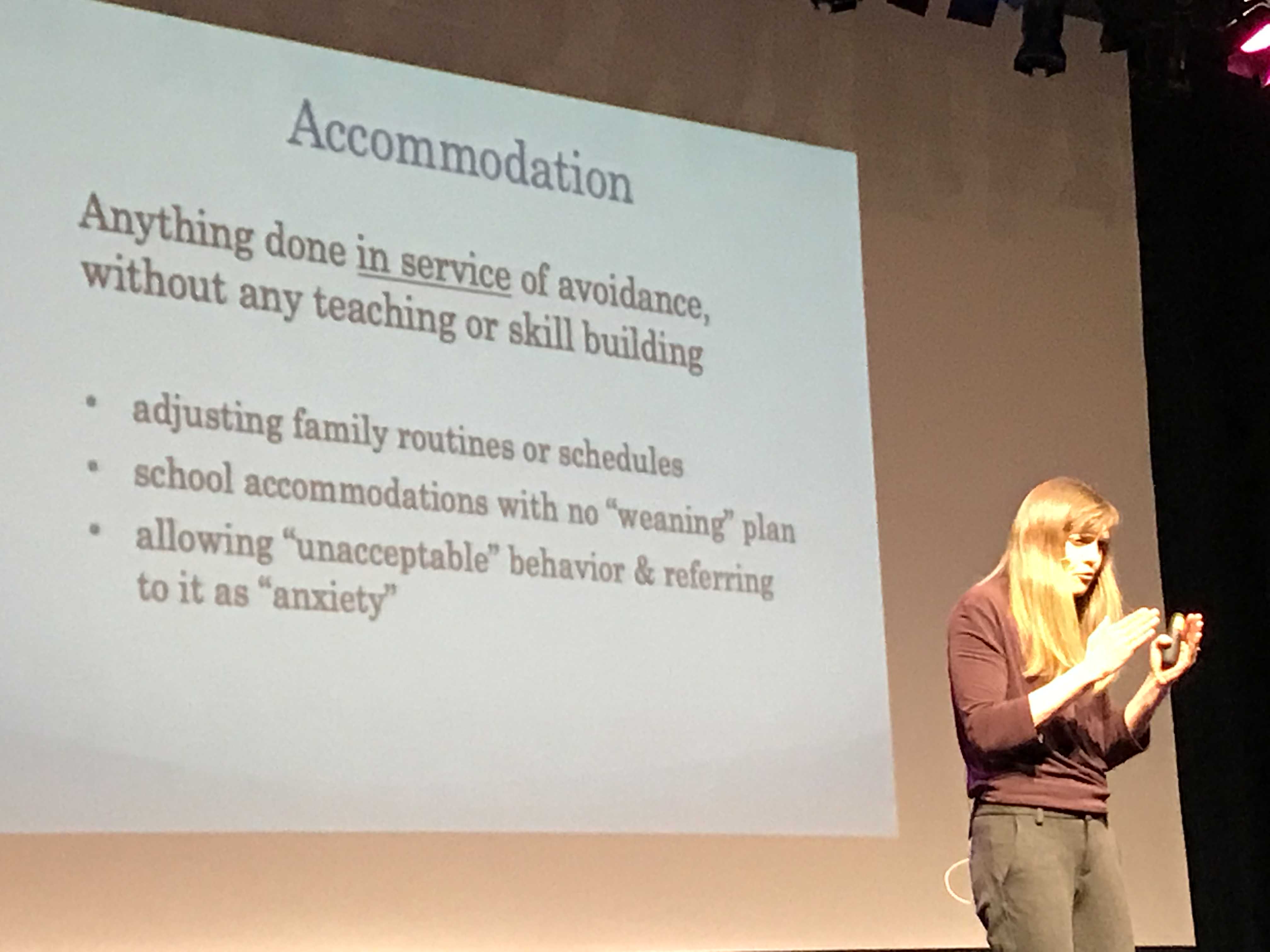The beginning of a new school year can be a particularly difficult time for students who deal with anxiety, as changes in routine and expectations can be triggering and challenge a child’s feeling of comfort and control. Whether the anxiety is academic or social, it can begin to hinder a child’s ability to achieve their best if it goes unaddressed. Unfortunately helping a child with anxiety is not always as simple as making the child feel comfortable. Whether it is as an educator or parent, it is important that we understand how to empower rather than enable.
One of the most important things we can do to help children struggling with anxiety is to learn more about what anxiety really is, and how we can help them to accept discomfort rather than avoid it. A wonderful resource on this topic is the work of Lynn Lyons. Lyons is a licensed clinical social worker and psychotherapist with over 28 years of experience who specializes in treating anxiety disorders in both children and adults. In a presentation given in April 2019 in McLean attended by Ms. McDermott, Lyons diagrammed the worry cycle and explained how shifting our approach to anxious thoughts can have a huge impact on empowering children or ourselves to overcome our worry rather than succumbing to it. A few of the highlights from her talk include:
- Change from Content-based to Process-based Interventions. When we focus on content, we only address how to fix SPECIFIC problems. By giving children a process to use to deal with worry, they learn to recognize and cope with new feelings and concerns as they arise. The power is taken away from the worry itself, and the child gains confidence over time to process and face their concerns.
- Do Not Avoid. The goal is not to eliminate or avoid symptoms, but to perceive and manage them in a new way. Avoidance has been found to strengthen anxiety over time.
- When Anxiety Strikes, Take Action! Learn that discomfort does not have to be negative, and you can allow the concerns without letting them overcome your actions.
- The child will have the most success when parents and teachers are on the same page.
- Beware of accommodations without a plan to move forward. While those with anxiety crave a ridged framework, our goal should be to help them move towards flexibility.
Lyons concludes that an adult’s shift from overprotecting and accommodating to promoting the child’s own competency can lead to a decrease in anxiety and an increase in the ability to operate more independently over time. It is natural and respectable to want to remove discomfort from those we love and teach, but we can do a greater service as we empower and compassionately teach each child that they have the strength to face hard things. United together, parents and educators can create a consistent and supportive community and show all children that despite their anxieties, they can and will be successful.
More about Lynn Lyons and her approach to managing anxiety can be found on her website.

*Have a friend or neighbor who might be interested in learning more about our award-winning, quality Northern Virginia private school in Annandale? Please invite them to contact us now and schedule a tour!
